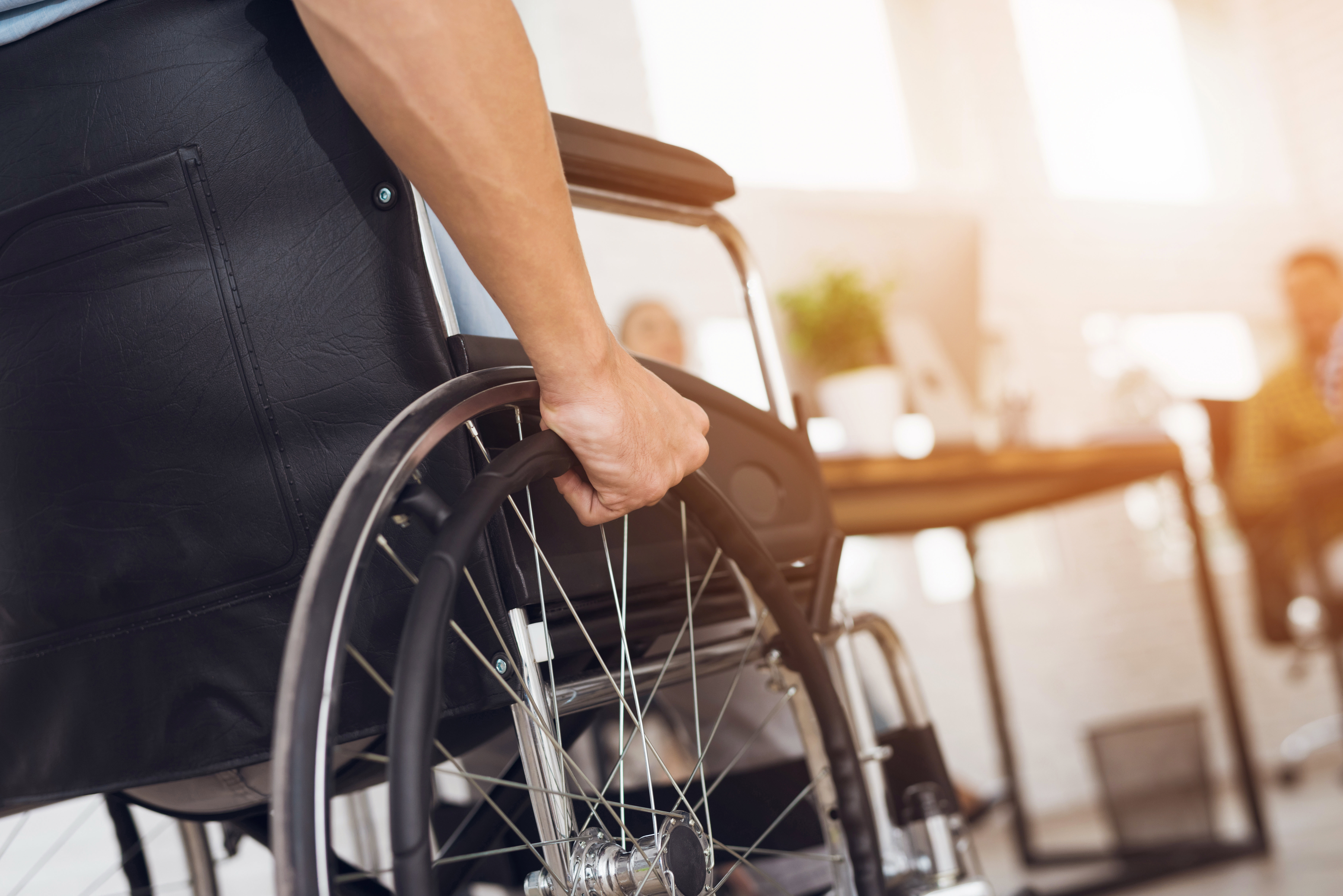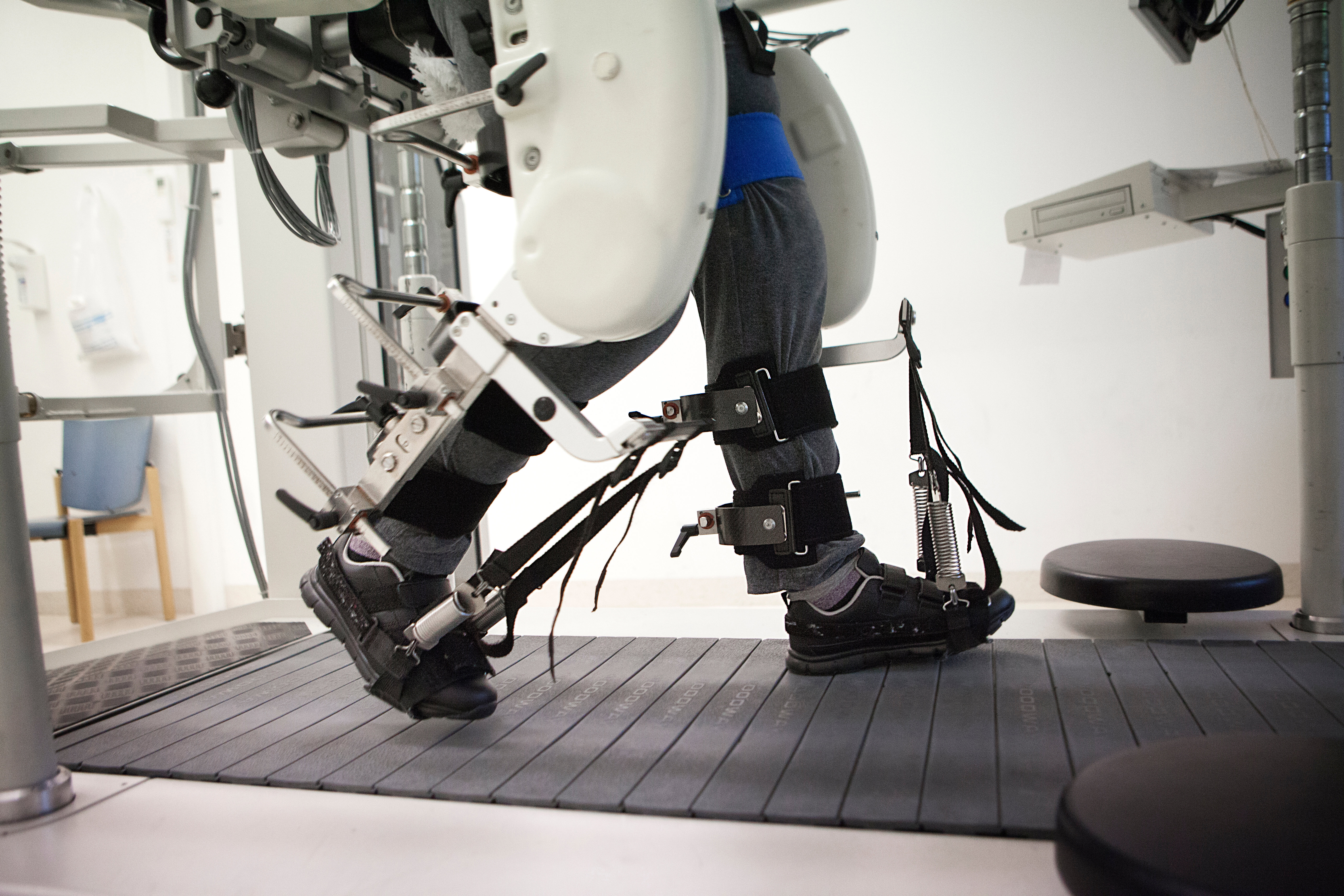
Matthew Trusch
Head of Personal Injury
Paralysis can often be the result of an accident or illness caused by someone else’s negligence; in which case our team of Personal Injury Solicitors are here to help you.
Your paralysis may leave you unable to move all or part of your body, and can be temporary or permanent, localised or generalised and partial or complete. It can also affect many bodily functions, including your bladder and bowel, and mean you can’t feel temperature or touch.
Paralysis can impact on every aspect of your life, from your career and relationships to your fitness levels and mental health. But when the circumstances that led to your paralysis were avoidable and not your fault, it can feel frustrating and unfair to be forced to make so many major changes.
We offer a free claims assessment and legal advice, and could handle your claim on a No Win, No Fee basis. Get in touch with our Serious Injury Solicitors for a free claims assessment and we’ll be happy to speak with you about your situation.
Fill in the form below to get in touch with one of our dedicated team members, or call our team today on: 0800 260 5010




We can guide and support you and your family to achieve the best possible outcome, improve your quality of life and help you live your life the way you want to. We can also help you access early rehabilitation, enhanced treatment, home adaptations, care and financial support, and will take into account other health consequences, such as psychological and neurological symptoms, when negotiating compensation for your injuries.
Sadly, people can become paralysed in many situations through no fault of their own, such as:

These can leave you with conditions such as:
Whatever the cause of your paralysis, it’s our mission to get you early access to treatment, rehabilitation and compensation. Our Serious Injury Solicitors have lots of experience of dealing with paralysis claims, getting compensation for clients that can help them gain some sense of closure and move on with their lives.
Get in touch with us for a free claims assessment, so if you or a loved one has been left paralysed by an accident, get in touch to see how we can help. We could act on a No Win, No Fee basis - ask us for details.
At Simpson Millar we want to help you. We are proud of our track record and the comments from our clients which is at the end of the day why we do the work we do.
We understand this extremely complex area of law and can make the process as straightforward and stress-free as possible
We’ll speak to you in straightforward terms during the claim, offering legal advice, support and information that you understand whenever you need it
Who provide all round support such as the Spinal Injuries Association (SIA), the Child Brain Injury Trust (CBIT) and we are also part of the Action against Medical Accidents (AvMA) Solicitors Referral Panel.
Many of our Serious Injury Solicitors are recognised experts in this field, and members of organisations including the Association of Personal Injury Lawyers (APIL) and the Law Society Personal Injury Panel
This can help ensure that you receive enough compensation to rebuild your life and pay for ongoing care

Our Major Trauma Unit is here for anyone who has suffered serious, life changing injuries.
A specialist, experienced lawyer will help and support you every step of the way from the beginning of your claim, right through to the end.
Because we have a wide range of expertise in the firm, we can help you to deal with any legal issues that arise because of your injury such as making sure you have a personal injury trust in place, any employment law issues or making or reviewing a Will.
Everybody’s circumstances and each paralysis claim are different, so we there isn’t a set amount of time for how long a claim will take. If the other party denies responsibility, the case could take longer and could even go to Court.
We’ll give you a Free Claims Assessment, where we’ll talk about the circumstances of the accident or illness so we can understand if we can help you to make a claim.
If we can take on your case, we’ll work with an independent medical specialist to understand the impact and extent of your paralysis.
We’ll also thoroughly investigate the circumstances that led to your paralysis, so we can understand exactly who was at fault and who we should claim against.
Once we have collected the evidence we need, we’ll approach the other side with details of your claim and ask them to respond.
If the other side accepts responsibility, known as liability, and you have urgent medical or financial needs, we could ask for an interim payment of compensation, so you don’t have to wait until the final settlement before you get the help you need.
As soon as a final compensation settlement has been agreed, we’ll arrange for it to be paid to you as quickly as possible.

Making sure you get the support you need without delay is one of our priorities when we’re representing you. So, we may also bring in a case manager who can help to organise and coordinate your different care needs, while your Solicitor focuses on building and presenting your case.
Case management is an essential service that can help you through every step of your rehabilitation, and we can include the cost of this within your claim.
Another issue that will need to be addressed after your injury will be your finances. You may not be able to go back to work for a long period of time, and in the most serious cases, you may never be capable of working in a full-time job again.
That has a huge financial impact on you and your family, so we’ll consider this when we’re working out how much compensation you should claim and advise you on what welfare benefits you could also be entitled to.
You can claim compensation for the pain, suffering and loss of amenity you’ve experienced as a result of your paralysis.
We can also help you claim for any financial losses such as loss of earnings, taxi fares and prescription charges, as well as the cost of any care, therapy, home adaptations or mobility aids you need.
The injuries aspect of any award of compensation is usually the lowest part of the award, with the bulk of it made up by the financial costs of treatment, care and assistance, aids and adaptations, and accommodation for your future life.
There are many different types of paralysis but the 5 main types of paralysis that you might hear referred to or be diagnosed with: -
Monoplegia - affecting only one arm or leg
Hemiplegia - affecting one arm and one leg on the same side of your body
Paraplegia - where there’s paralysis below the waist affecting both legs, hips and your lower bodily functions, including your bladder and bowel.
Triplegia - where there is paralysis in one arm and both legs
Quadriplegia or Tetraplegia - where there is paralysis below the neck affecting both of your arms and both of your legs and bodily functions.
The amount of compensation you could receive will depend partly on the nature of your injury. For example, Judicial College guidelines state that a person could receive between £304,630 and £379,100 for Tetraplegia, and anything from £205,586 to £266,740 for Paraplegia. For an injury with a shorter duration, you could be awarded around £46,000.
These are just guidelines, and any compensation you receive will depend on your specific situation.
There’s no known cure for paralysis, but rehabilitation can make a huge difference to your future quality of life. With the right compensation package in place, you can access care including:
Personal Injury cases which result in paralysis cases can normally run on a No Win, No Fee basis. Ask us for details.
In England and Wales, you have three years to make a paralysis claim, which starts from the date you suffered your accident or when you first became aware of the problem. If you’re claiming compensation on behalf of a child, you have until they turn 18 to claim.

In the UK, many people decide to claim compensation after being injured due to an accident which was someone else’s fault. In law, this is called a Personal Injury Claim. The most common of these accidents include road traffic accidents and accidents at work.

Yes. Sports clubs are responsible for making sure that any visitors to their premises are reasonably safe, and the club also has a duty of care to its employees. That means anyone either visiting or working at a sports club could claim compensation if they’re injured and believe it’s because the sports club was negligent in some way.

Horse riding is a popular hobby and sport but accidents can happen, no matter how experienced of a rider you are. While many situations can be out of your control, if you’re seriously injured in a horse riding accident, and it could have been prevented by someone responsible for your safety, we could help you claim compensation.
Fill in the form below to get in touch with one of our dedicated team members, or call our team today on: 0800 260 5010